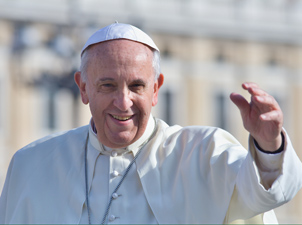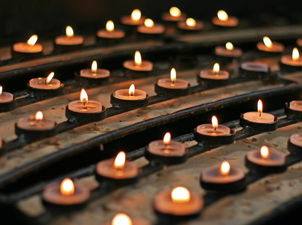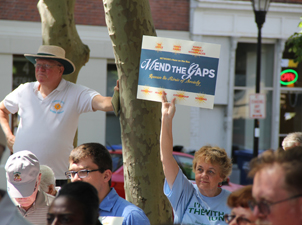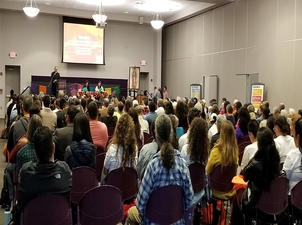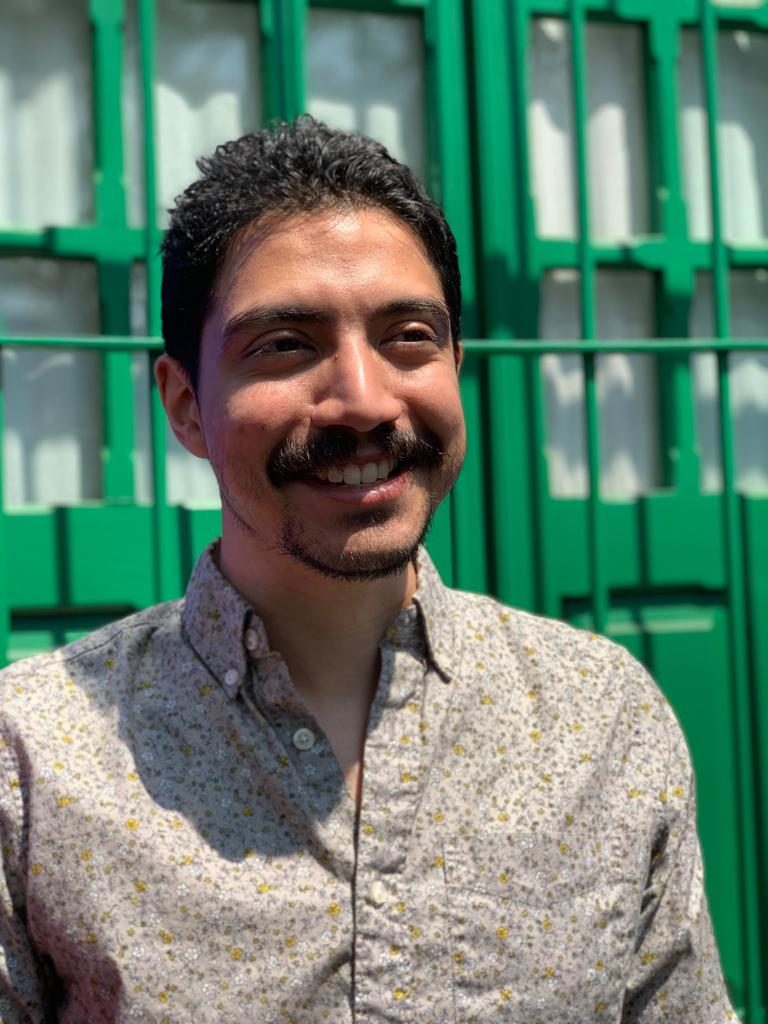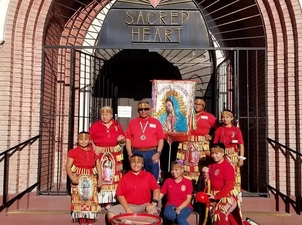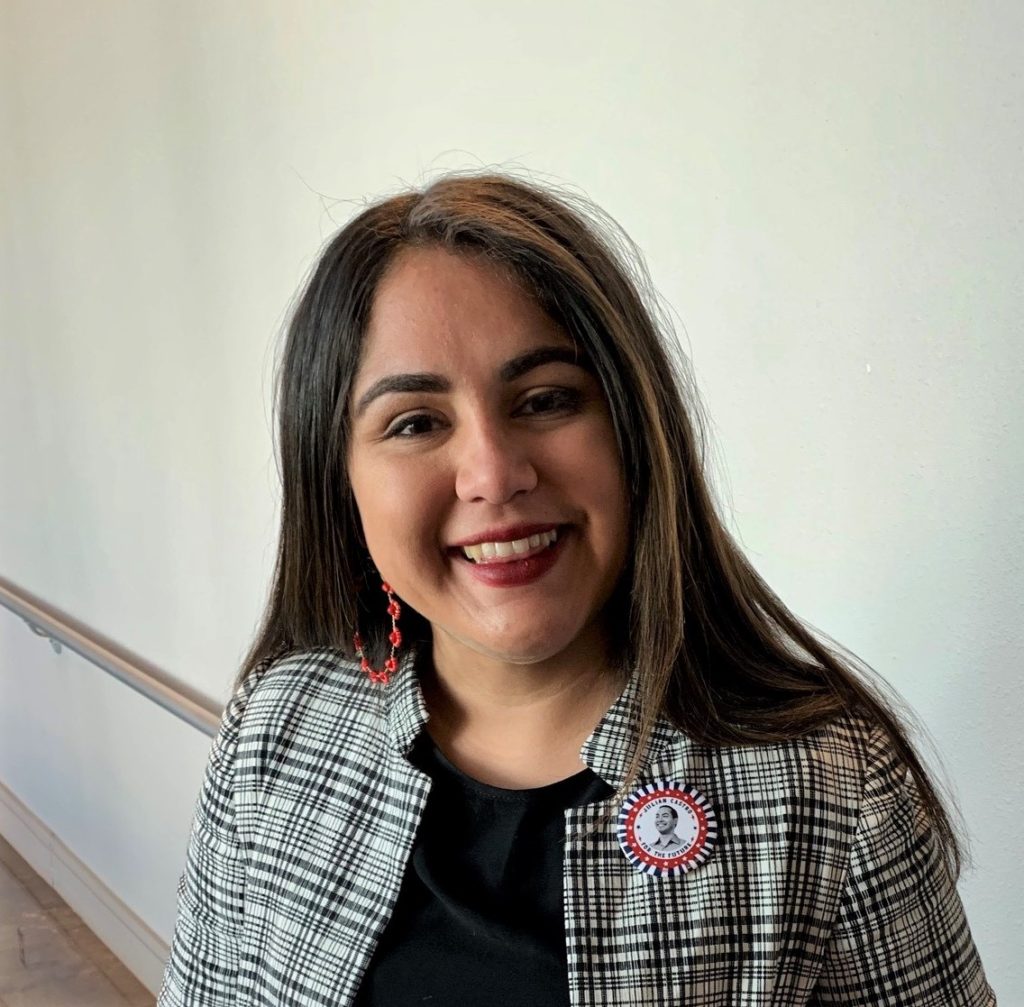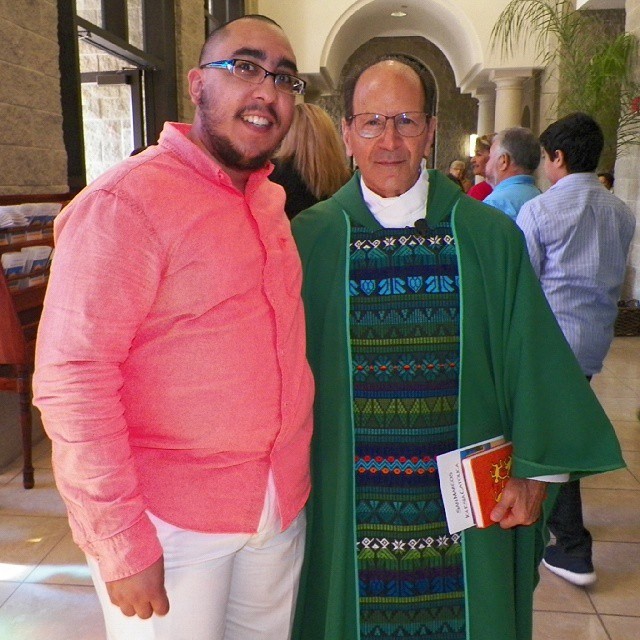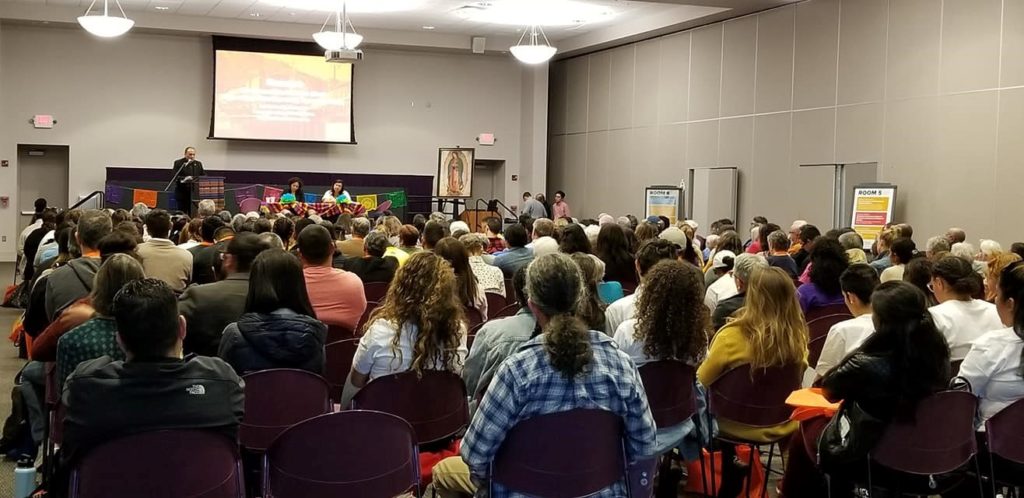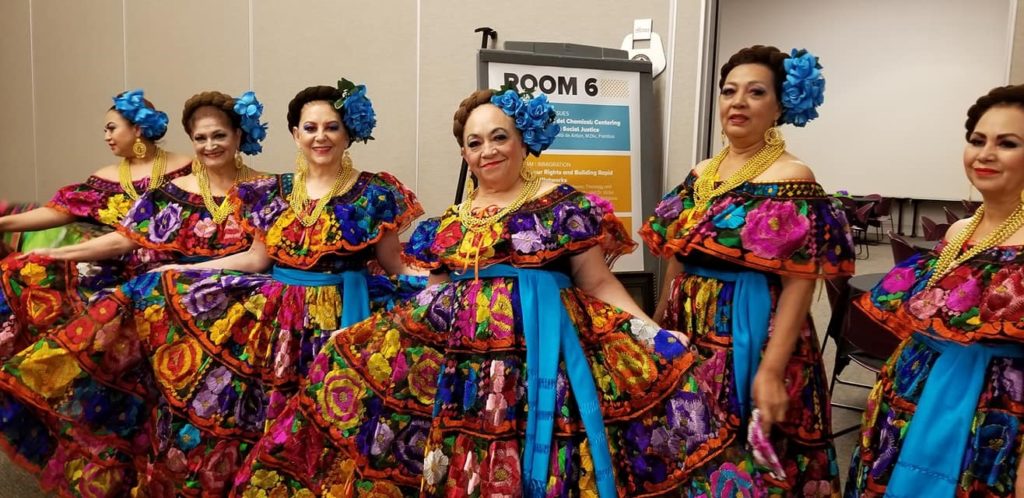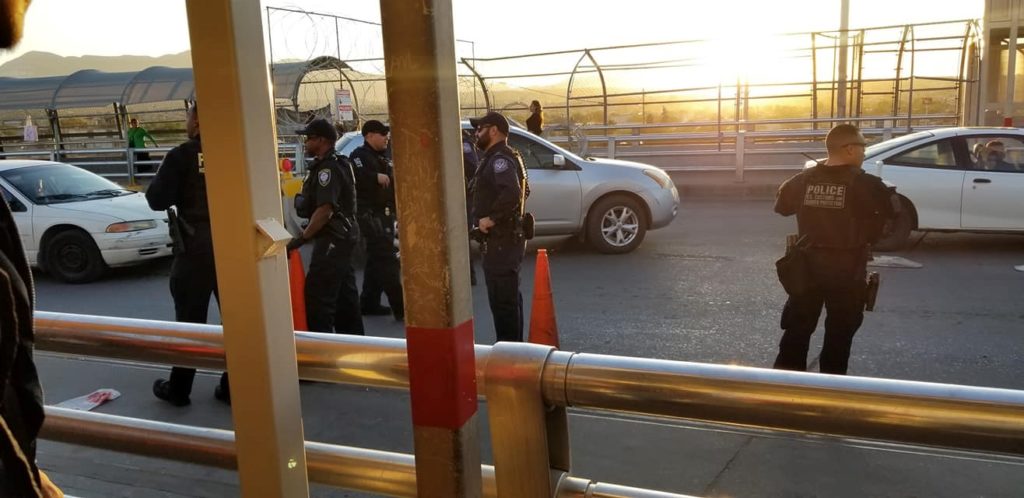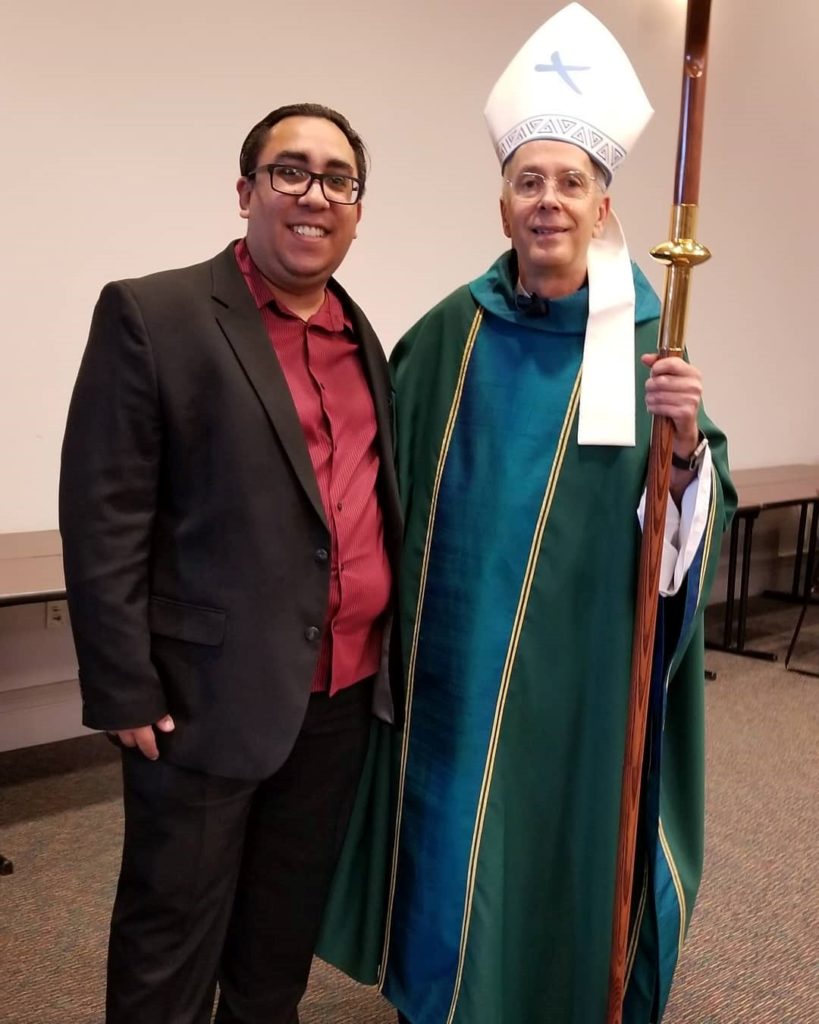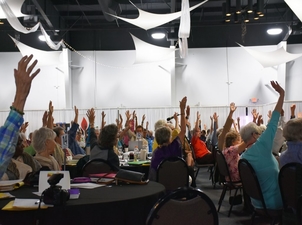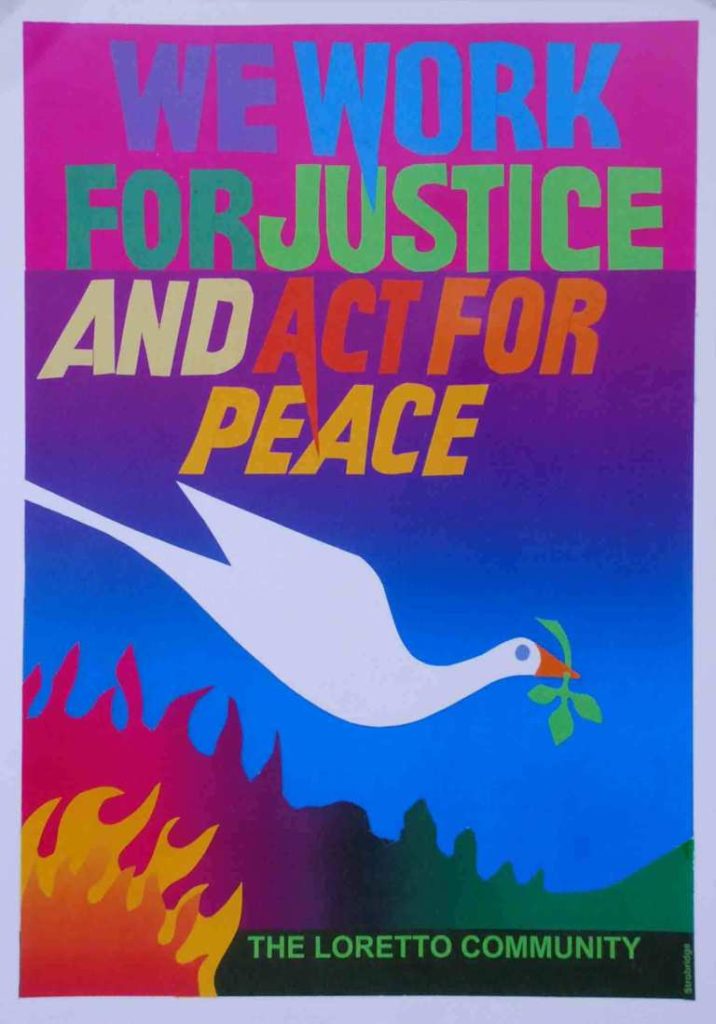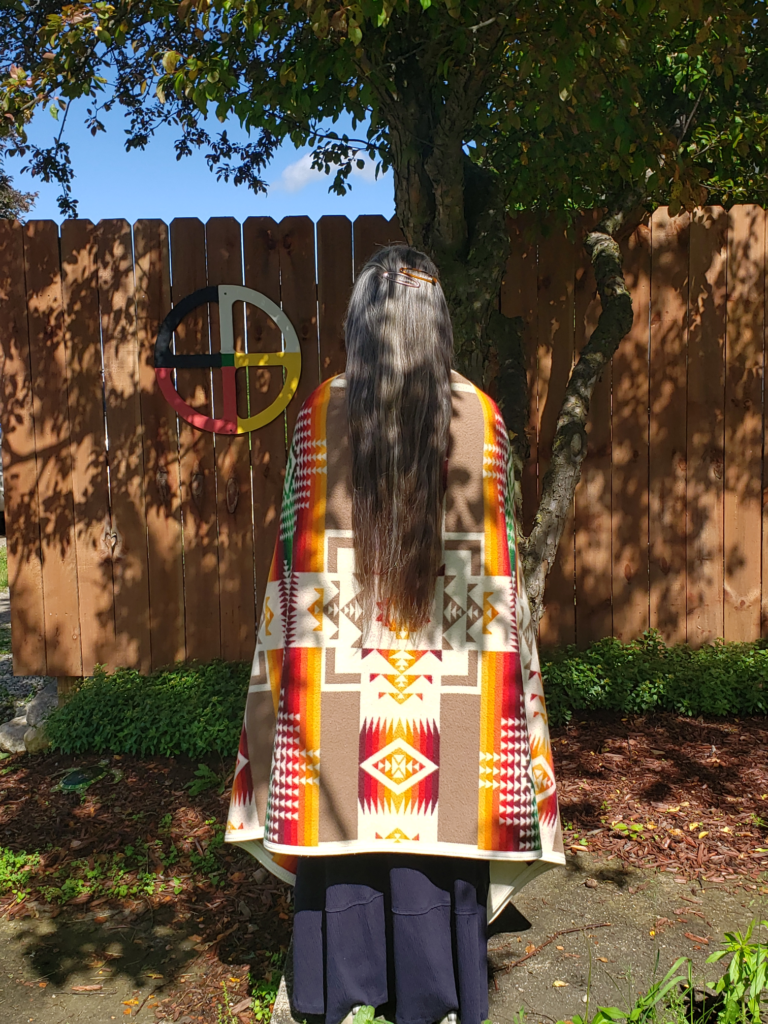
COVID-19 Illustrates and Amplifies Racism
Alex Burnett and Colleen Ross
April 24, 2020
NETWORK’s advocacy is rooted in ensuring all have what they need to live healthy, dignified lives. COVID-19 is a new, global challenge to this mission. Both the health dangers as well as the economic ramifications of COVID-19 are very real threats to human life, but these threats do not affect everyone living in the United States the same way.
Due to centuries of systemic injustice, people of color in the United States are experiencing additional hardship as a result of the COVID-19 pandemic. Our federal government’s response must take this into account and prioritize assistance for communities of color in ongoing legislation.
Higher Rates of Infection and Death for People of Color
Across Washington, D.C. and every state that has collected coronavirus data by race and ethnicity, people of color are suffering and dying from COVID-19 at higher rates than white people.
For the Black community especially, the number of people who have been infected with COVID-19 and died as a result of COVID-19 is vastly disproportional. Majority black counties have three times the rate of infections and nearly six times the rate of deaths as majority white counties, according to analysis done by the Washington Post. Data collected from the states by Mother Jones further illustrates the disparity for the Black community:
- In Wisconsin, Black people represent 6% of the population and nearly 40% of COVID-19 fatalities
- In Louisiana, Black people make up 32% of the state’s population but almost 60% of fatalities
- In Kansas, 6% of the population is Black and yet Black people account for more than 30% of COVID-19 deaths
These higher rates of COVID-19 infection and death for the Black community are a direct reflection of the systemic racism present in our nation’s healthcare, housing, workforce, and society. Centuries of denying Black people access to quality health care, as well as other social determinants of health, have led to more Black people having chronic illnesses or underlying health conditions that lead to negative COVID-19 outcomes. COVID-19 is putting a spotlight on the deeply embedded racial inequities that impact health and well-being in the United States with or without a pandemic.
Workers of Color: Increased Risk, Cuts, and Unemployment
While many white professionals can work remotely during this crisis, a disproportionate number of people of color continue working public-facing, “essential” jobs. The Labor Department reported 30% of white workers and 37% of Asian American workers could work from home in 2017 and 2018, while 20% of Black workers and only 16% of Latinx workers could do so.
Despite anti-discrimination legislation, the U.S. labor market remains highly racially segregated, with more people of color in low-wage positions in health care, food service, childcare, public transportation, and shipping. Because these industries sustain the U.S. economy, “stay-at home” orders haven’t applied to their largely Black and brown workforces, meaning “essential” workers of color face heightened danger. According to a March 2020 report from the Economic Policy Institute, 80.3% of Black workers and 83.8% of Latinx workers cannot practice safe social distancing by working from home.
Within two months, the coronavirus crisis has left thousands of workers of color sick, dead, unemployed, and uninsured. In New York City, Black and Latinx people are dying from COVID-19 at twice the rate of whites, partially because many cannot work remotely. In majority Black cities and on Native American reservations, employers are firing workers of color at skyrocketing rates, leaving thousands without health insurance and income amidst a global pandemic.
Despite these circumstances, workers of color are leading movements for occupational safety and improved benefits. In Rhode Island, frontline healthcare workers, who are largely women of color, have repeatedly rallied for higher hazard pay, better personal protective equipment (PPE), and safer staffing levels. Amazon warehouse workers, who are primarily Black and Latinx, have organized numerous walkouts since the COVID-19 pandemic escalated, demanding safer working conditions. These movements demonstrate that workers of color are actively pressuring lawmakers and employers to mitigate COVID-19’s racist impact. As justice-seekers, we support these efforts and call for elected officials and business leaders to value people over profits.
Greater Economic Losses for People of Color
The COVID-19 virus is both a public health crisis and an economic one, and people of color are disproportionately affected on both counts. NPR found the U.S. March jobs data showed worse rates of unemployment for people of color, with the share of white people who are employed falling by 1.1%, while Black people had a 1.6% drop, Asian Americans 1.7%, and Latinos 2.1%.
Long term economic fallout from this crisis will likely hit communities of color hardest, expanding the already-significant racial wealth and income gap in the U.S. Hispanic, Black, and Native American families lost the most in wealth and income during the Great Recession, with homeownership and wealth never fully rebounding for these communities.
Now, the effects of economic downturn will impact communities of color again, both in the long term as well as the short term. In these uncertain times, families, especially families of color, are struggling to stay housed as well as put food on the tables.
For immigrants, especially undocumented immigrants and mixed-status families, the federal government’s response to COVID-19 has left them out. The CARES Act stimulus checks for individuals and families do not accept an ITIN (Individual Taxpayer Identification Number), which prevents up to 20% of Latinx people from receiving this assistance, according to Orson Aguilar, executive director of UnidosUS Action Fund. NETWORK is advocating for Congress to extend this assistance to taxpayers using ITINs, and to include them in future financial assistance.
Both the short and long-term economic effects of the COVID-19 pandemic must be taken seriously, and the racial realities must be addressed to prevent further growth of the racial wealth and income gap.
Escalation of Anti-Asian Racism and Prejudice
Following the emergence and spread of the COVID-19 illness, there has also been a rise in anti-Asian racism in direct words and actions. In the United States, racist incidents have been reported across the country. At the same time, President Trump and his administration have deliberately used incorrect, racist terms to refer to the virus. Using incorrect, racist terms instead of the official name for the virus: COVID-19 or the coronavirus, creates undue hardship and diverts attention and energy that needs to go toward protecting all people from illness and additional suffering.
This anti-Asian racism is not new, but a re-emergence of long-standing racism and xenophobia toward Asian Americans, many of whom have lived in the U.S. for centuries. Now, faith leaders and elected officials, as well as actors and athletes have stepped in to renounce this racism and call our nation to a more just, more inclusive way of being during this difficult time. Anti-Asian racism, whether from an average person or from the President, have no place in our response to this global pandemic.
Serious Risks for Incarcerated and Detained Individuals
Because coronavirus spreads through touching, coughing, and sharing close physical space, the pandemic is wreaking havoc on U.S. prisons and detention centers, where Black, Latinx, and Native American people comprise over 60% of the population. In many prisons, including the Federal Correctional Complex in Oakdale, Louisiana, administrators have not released people or implemented social distancing measures, putting incarcerated people at considerable risk of contracting COVID-19. Such inaction, combined with already widespread medical neglect and unsanitary conditions, caused hundreds of incarcerated people across the country to contract and die from coronavirus in March and April.
As of early April, in federal prisons, seven inmates have died of COVID-19, and almost 200 more inmates, as well as 63 staff, have been infected. Migrants detained in San Diego’s Otay Mesa Detention Center feel particularly afraid of dying from coronavirus-related medical negligence, citing lack of testing kits and soap, according to Buzzfeed News.
Disturbed that COVID-19 is exacerbating already unsafe medical conditions, incarcerated people and their allies are organizing for freedom, justice, and safety. In Michigan and Arizona, hundreds of cars rallied outside of prisons, demanding the immediate release of every incarcerated person. In Illinois, Pennsylvania, and California, incarcerated people and detained migrants launched hunger strikes to advocate for their release from medically unsanitary conditions. Thankfully, some of these activists have won victories. After a staffer at the Plymouth County Correctional Facility in Massachusetts possibly contracted COVID-19, Mario Rodas Sr., an incarcerated migrant, worked with the ACLU to secure his release. The ACLU is litigating similar cases in Maryland, California, Pennsylvania, and Washington.
Additional Reading:
To learn more about the impact of the coronavirus on communities of color, we recommend the following:
Stop Blaming Black People for Dying of the Coronavirus
By Ibram X. Kendi published in the Atlantic April 14, 2020
4 reasons coronavirus is hitting Black communities so hard
By Eugene Scott, published in the Washington Post April 10, 2020
Latinos disproportionately dying, losing jobs because of the coronavirus: ‘Something has to change’
By Marco della Cava, published in USA Today April 18, 2020
How the coronavirus is surfacing America’s deep-seated anti-Asian biases
By Li Zhou, published in Vox April 21, 2020
The Economic Fallout of the Coronavirus for People of Color
By Connor Maxwell and Danyelle Solomon at the Center for American Progress, April 14, 2020
Mass incarceration could add 100,000 deaths to US coronavirus toll, study finds
By Ed Pilkington, published in the Guardian April 22, 2020










